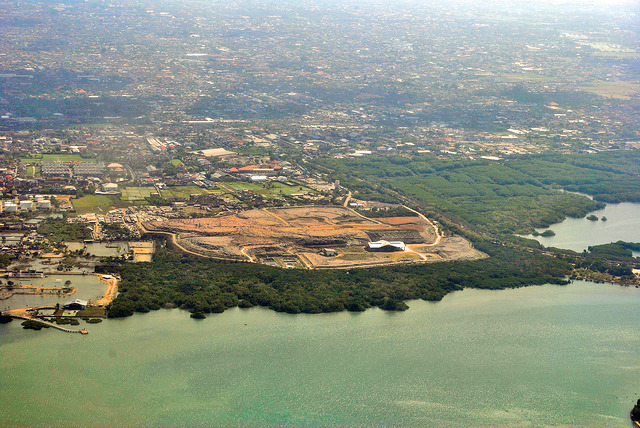Medical waste is being directly dumped in Bali’s Suwung landfill, untreated, posing substantial environmental and health risks, according to findings from a local NGO. Bali officials, however, argue the contrary, that untreated medical waste is strictly prohibited from being dumped at the landfill and any such illegal dumping would come as a shock to them.
Syringes, infusion tubes, blood bags, and medicine bottles are all being indiscriminately thrown into South Bali’s 32-hectare dump, local NGO, Bali Fokus claims.
Medical waste, which often contains toxic, pathogenic, infectious, and radioactive materials, needs to be treated first and not just sent straight to Suwung, writes Bali Fokus, who teamed up with newspaper Tribun Bali to investigate the dumping issue.
Before simply disposing bio-hazardous material into the environment, it should be autoclaved, says Bali Fokus. While incinerating had been a choice method in previous times, it’s no longer preferable because burning would release toxins into the environment. With autoclaving, the waste is steamed under a high pressure to a certain temperature.
If medical waste is allowed to be disposed of in Suwung, untreated, all we need is some rain to move contaminants into waterways, which can make its way to the sea and to the fish we’re all eating, cautions Bali Fokus.
Tribun Bali interviewed a local man, Arik, who has earned a living scavenging at Suwung for the past 20 years. The 55-year-old said that one day at Suwung in 2016, he stepped on a syringe that pierced his foot through his shoe and caused him problems walking for a span of eight months.
“The next day after I was punctured, my leg started to swell. When I was on the road, I collapsed. Finally, I want back to Jember. Could not work for eight months. It really made me suffer for eight months,” Arik told Tribun Bali.
The newspaper says that when it had a reporter pose as a hospital looking to dump waste, they were told by Suwung to go right on ahead.
“Yeah sure. The hospital rubbish goes to the same dumping place here. This is the place for it all. Mixed,” Tribun Bali quoted an officer from the Denpasar Department of Environment and Sanitation (DLHK) as saying.
The head of DLHK, Office Waste, Hazardous and Toxic Materials, Ketut Adi Wiguna, however, had a very different reaction and says he was shocked to hear of any hazardous materials being dumped in Suwung.
Medical waste is strictly prohibited from going into the landfill and if anyone is doing that, they are criminals, Wiguna said.
It’s under the Ministry of Environment and Forestry Regulation no. 56 of 2015 on Technical Procedures and Requirements for the Management of Hazardous and Toxic Waste, explained Wiguna.
Suwung Landfill Waste Collection director, Nyoman Sueca, echoed Wiguna in claiming not to know about any medical waste currently being dumped into the Bali landfill.
Years ago, in 1996-1997 there was a hospital that would dispose of its waste at Suwung that has now transformed into a “junk mountain,” Sueca said.
“Around 1996-1997, it was there. After that, it was forbidden,” Sueca said when being interviewed at his place of residence two weeks ago.
He admitted to hearing about a number of scavengers who had been pierced by needles at the landfill but says there have been no recent incidents of such nature.
All the producers of waste including Pusekesmas (community health centers), clinics, and hospitals in Denpasar claim to have fulfilled waste management procedures for medical waste, says Sueca.
“If they make a violation, they can be subject to a maximum fine of IDR50 million (US$3,750), he said.
To his knowledge, hospitals in Denpasar mostly work with third parties for handling their medical waste management.




